KALIFAT DES SCHRECKENS – IS UND DIE BEDROHUNG DURCH DEN ISLAMISTISCHEN TERROR
im Rahmen des Jour Fixe NAHOST AKTUELL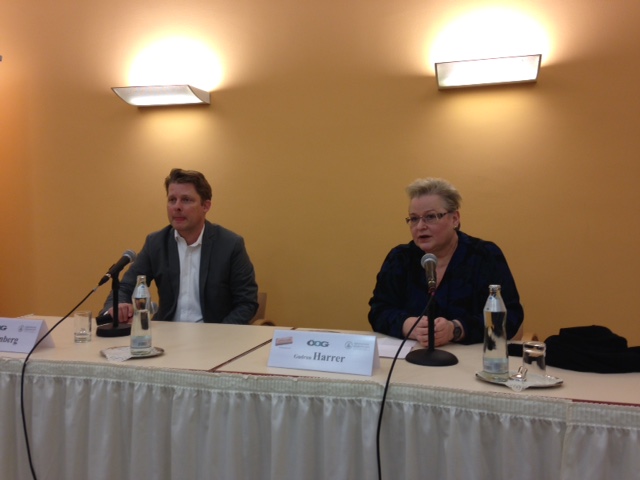
in der Diplomatischen Akademie
Gudrun Harrer im Gespräch mit Guido Steinberg
im Rahmen des Jour Fixe NAHOST AKTUELL
in der Diplomatischen Akademie
Gudrun Harrer im Gespräch mit Guido Steinberg
Yemane Ghebreab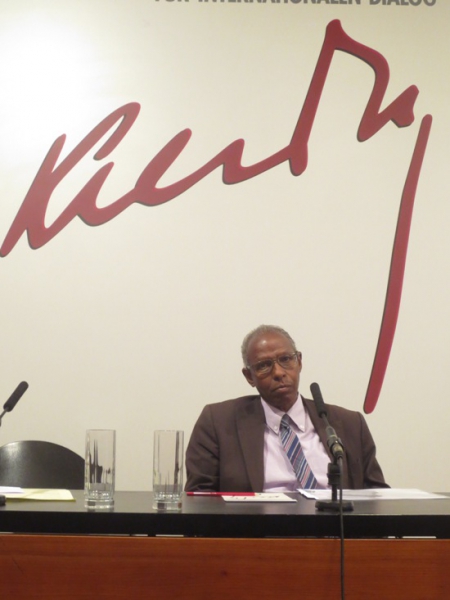
Head of Political Affairs for Eritrea’s leading political party, PFDJ
Presidential Adviser
Jean-Christophe Belliarde
Director for Africa and the Indian Ocean, Ministry of Foreign Affairs, Paris
Moderator:
Georg Lennkh
Member of the Board of the Bruno Kreisky Forum; former Austrian Special Envoy for Africa
Eritrea is a country in the very heart of the Horn of Africa, one of the most volatile regions in the world. The ongoing volatility of the situation in Somalia and the total breakdown of legal order and governance in South Sudan, and in Yemen, all neighbors of Eritrea, render its position precarious. The political development of Eritrea, the topic of Yemane Ghebreabs presentation, will be all the more important.
Zygmunt Bauman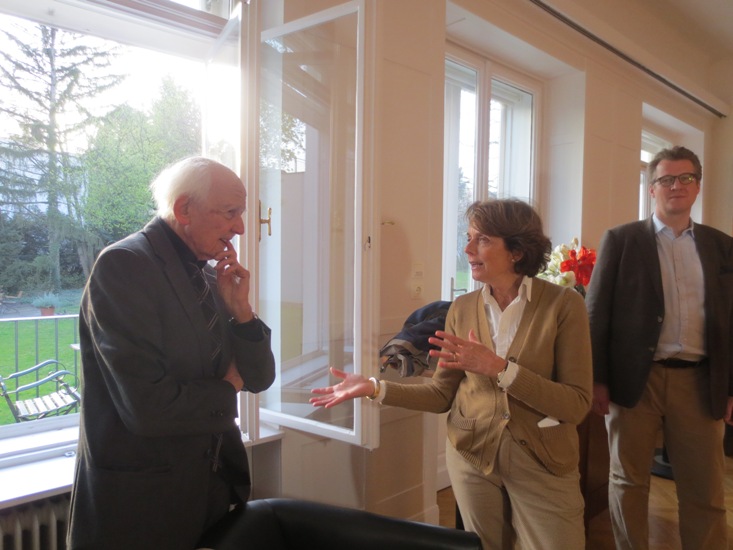
Sociologist
Moderator: Philipp Blom, Author and Historian
Partner:
Der Standard Album
Rainer Rosenberg, Campus Radio
Diese Serie wird unterstützt von:
Daniel Kapp, Strategic Consulting & Responsible Cooperation GmbH
ithuba CAPITAL
Raiffeisen Zentralbank Österreich AG
Olivier Roy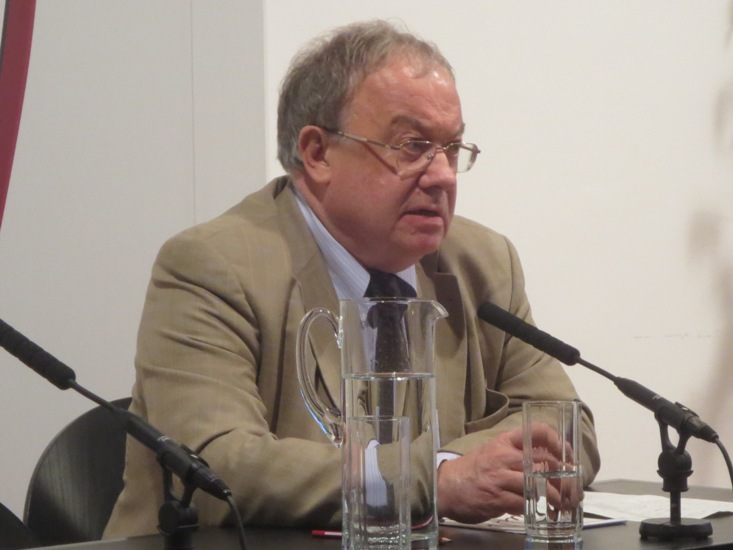
Olivier Roy is professor at the European University Institute in Florence, Italy. He was previously a research director at the French National Center for Scientific Research (CNRS) and a lecturer for both the School for Advanced Studies in the Social Sciences (EHESS) and the Institut d’Études Politiques de Paris (IEP). From 1984 to 2008, he acted as a consultant to the French Foreign Ministry. In 1988, Roy served as a United Nations Office for Coordinating Relief in Afghanistan (UNOCA) consultant. Beginning in August 1993, Roy served as special OSCE representative to Tajikistan until February 1994, at which time he was selected as head of the OSCE mission to Tajikistan, a position he held until October 1994.
Roy is the author of numerous books on subjects including Iran, Islam, Asian politics. These works include Globalized Islam: The search for a new ummah, Today’s Turkey: A European State? and The Illusions of September 11, L’Echec de l’Islam politique (1992) (The Failure of Political Islam) (1994): In 2010 he published Holy Ignorance, When Religion and Culture Part Ways an analysis of religion, ethnicity and culture and the results when these part ways.
Introductory remarks and moderation:
Isolde Charim, philosopher and curator of the series
Gabriel Motzkin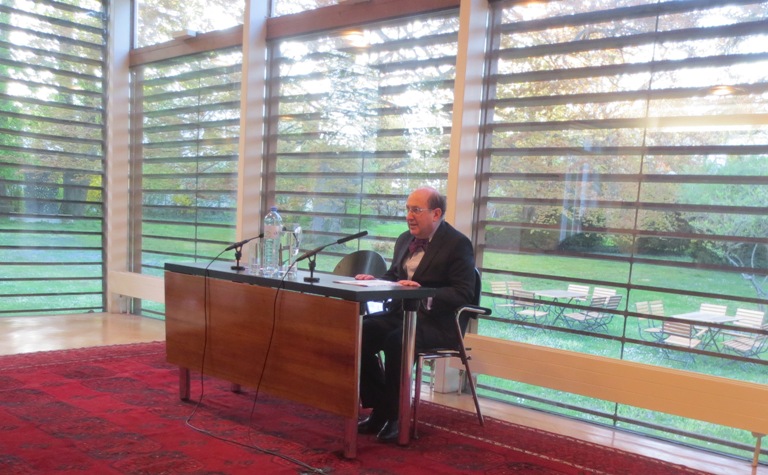
The Director of the Van Leer Jerusalem Institute, Professor Gabriel Motzkin, is an emeritus of the Hebrew University. He held the Ahad Ha’am Chair in Philosophy, and was also a member of the Departments of History and German Literature. Gabriel Motzkin has served as the Dean of the Faculty of Humanities (2001-2004) and Director of the Franz Rosenzweig Center for German-Jewish Literature and Cultural History (1996-1999 and 2006-2007). His fields of interest are: the philosophy of history, secularization theory, cognitive science, memory theory, and Heidegger.
Are ethnicity and democracy compatible? Is a democracy based on religious or ethnic principles possible? Gabriel Motzkin, Director, Van Leer Jerusalem Institute, will seek to respond to these questions and related issues.
Introductory remarks and moderation:
Isolde Charim, philosopher and curator of the series
Christian Manahl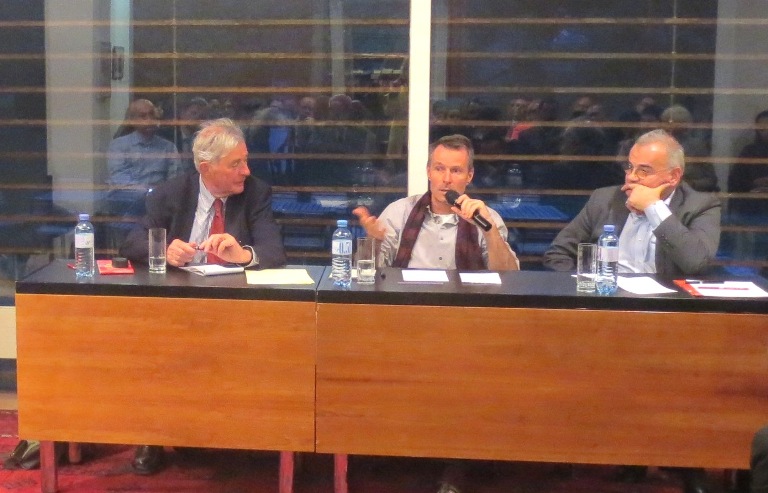
Head of Delegation, European Union, Eritrea
Co-Discussant
Homayoun Alizadeh
High ranking official with the UN High Commissioner for Human Rights (up to 2014), now Ministry of Interior
Moderation:
Georg Lennkh, Mitglied des Vorstands des Bruno Kreisky Forums
A consequence of the isolation of Eritrea – lasting for years, and partially self-inflicted – was the fact that Eritrea has disappeared from the debate about the Horn of Africa. Very recently, Eritrea has begun to open up a little and to start a new phase of cooperation with the United Nations and the European Union. What does this mean for Eritrea and the region? What is Eritrea’s significance in the regional strategic security policy? And what are the perspectives, and the risks, of this opening? At the same time, the significance of such a development for the European Union, and for Austria will have to be examined.
Panel discussion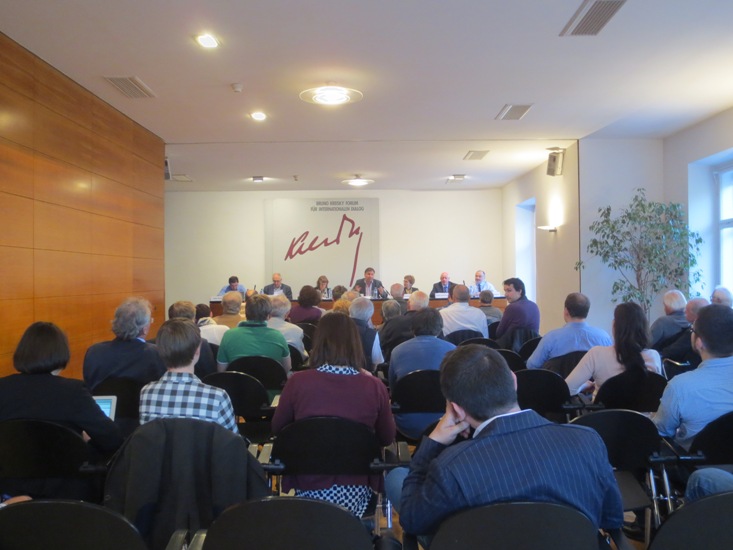
Contributors:
Nikolay Petrov, professor, Higher School of Economics
Maria Lipman, visiting fellow, European Council on Foreign Relations
Boris Makarenko, chair of the board, Center for Political Technologies
Natalia Zubarevich, professor, Moscow State University
Kirill Rogov, senior researcher, Gaidar Institute
Lev Gudkov, director, Levada Center
Ivan Krastev, moderator, permanent fellow at IWM Vienna
The State of Russia: What Comes Next? Edited by Maria Lipman and Nikolay Petrov, scheduled for publication by Palgrave Macmillan in June 2015
This book is a new volume produced by the international team of experts that has been working on Russia development scenarios since 2007. The unexpected and rapid developments of February – March 2014 went far beyond the scenarios and analyses offered by our experts; the current trajectory appears to be worse than the worst–case scenario that we considered. Russia’s reaction to the Ukraine crisis and subsequent decisions made by the Russian government – the annexation of Crimea and Russia’s ensuing role in the armed conflict in the east of Ukraine – have dashed hopes for Russia’s development with regard to modernization. Harsh confrontation with the West, isolationism inside the country, militarization and increased government control of the economy, public and private space, as well as intolerance to even the slightest expressions of disloyalty and crackdown on any independently-minded civic forces are all the factors that have been rapidly and consistently obliterating all the gains made in the quarter of a century after the collapse of the communist regime.
After the annexation of Crimea the course of developments took on a logic of its own – what makes the situation incredibly uncertain and practically inevitably leads to political crisis, which may either result in the collapse of the regime or its radical transformation accompanied by leadership change.
In cooperation with the Institute for Human Sciences (IWM) and supported by Open Society Foundations

